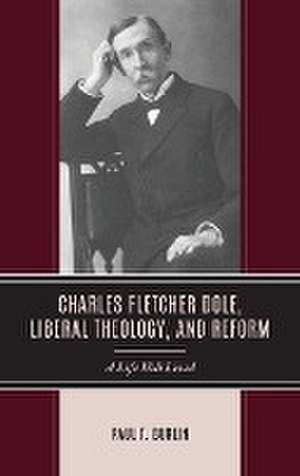Burlin, P: Charles Fletcher Dole, Liberal Theology, and Refo
Autor Paul T. Burlinen Limba Engleză Hardback – 4 sep 2023
Preț: 695.26 lei
Preț vechi: 902.94 lei
-23% Nou
Puncte Express: 1043
Preț estimativ în valută:
133.10€ • 136.88$ • 110.42£
133.10€ • 136.88$ • 110.42£
Carte tipărită la comandă
Livrare economică 17 februarie-03 martie
Preluare comenzi: 021 569.72.76
Specificații
ISBN-13: 9781666928709
ISBN-10: 1666928704
Pagini: 330
Dimensiuni: 157 x 235 x 24 mm
Greutate: 0.65 kg
Editura: Lexington Books
ISBN-10: 1666928704
Pagini: 330
Dimensiuni: 157 x 235 x 24 mm
Greutate: 0.65 kg
Editura: Lexington Books
Cuprins
Dedication
Acknowledgements
Introduction
Chapter One: Historical Background
Chapter Two: Forebearers
Chapter Three: Education
Chapter Four: Two Churches and Locales
Chapter Five: The Liberal Theological Context
Chapter Six: What Evolution Wrought
Chapter Seven: Social Gospel I: Citizenship and Political Economy
Chapter Eight: Social Gospel II: Temperance, Gender, and Race
Chapter Nine: Social Gospel III: Imperialism, War, and Peace
Conclusion
Afterword
Bibliography
About the Author
Acknowledgements
Introduction
Chapter One: Historical Background
Chapter Two: Forebearers
Chapter Three: Education
Chapter Four: Two Churches and Locales
Chapter Five: The Liberal Theological Context
Chapter Six: What Evolution Wrought
Chapter Seven: Social Gospel I: Citizenship and Political Economy
Chapter Eight: Social Gospel II: Temperance, Gender, and Race
Chapter Nine: Social Gospel III: Imperialism, War, and Peace
Conclusion
Afterword
Bibliography
About the Author
